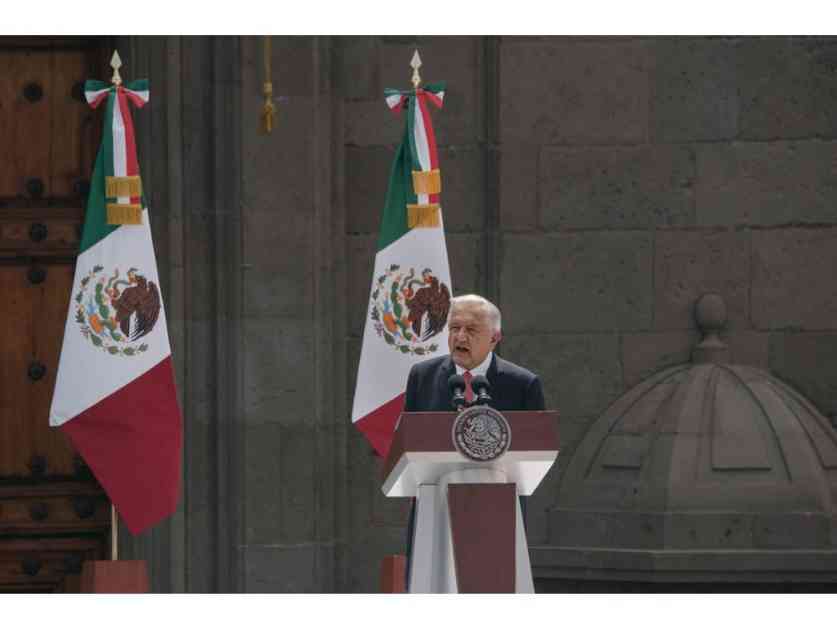AMLO’s Judicial Reform: A Step Towards Limiting Criminal Influence in Mexican Courts
Mexico’s proposed overhaul of the judicial system, championed by outgoing President Andres Manuel Lopez Obrador (AMLO), aims to ensure that the country’s courts work in the best interest of the Mexican people and not for organized crime. In a recent speech in Mexico City, AMLO emphasized the importance of the reform in combating judicial corruption and restoring faith in the justice system. The reform proposes that Mexico’s judges be elected rather than appointed, a move that AMLO believes will lead to a more transparent and accountable judiciary.
Ensuring Justice for All
During his address in front of thousands of supporters at Mexico’s presidential palace, AMLO reiterated that the reform is designed to ensure that the court system dispenses justice for the benefit of all citizens, rather than serving the interests of organized crime or white-collar criminals. By electing judges, the government aims to create a system that is more responsive to the needs of the people and less susceptible to external influences. This shift towards judicial accountability and independence is seen as a crucial step in strengthening Mexico’s democracy and upholding the rule of law.
Challenges and Controversies
While AMLO’s judicial reform has garnered support from his followers and allies, it has also faced criticism and opposition from various quarters. Critics argue that the proposed changes could undermine judicial independence and erode checks on the ruling Morena party’s power. The plan has also drawn backlash from judges, the Mexican opposition, investors, and the US, who fear that it may have unintended consequences on the country’s legal system.
Despite these challenges, AMLO remains steadfast in his commitment to pushing through the reform before the end of his term. The plan has already received approval from a key congressional committee, signaling progress towards its implementation. President-elect Claudia Sheinbaum is expected to continue supporting many of AMLO’s constitutional reform proposals, ensuring continuity in the government’s efforts to combat corruption and improve governance.
Building on Success
In his final State of the Nation address, AMLO highlighted the achievements of his administration in key areas such as crime reduction, immigration, energy, infrastructure projects, and poverty alleviation. Over the course of his six-year term, AMLO has worked towards fulfilling his campaign promises and delivering tangible results for the people of Mexico. His efforts to address systemic issues and tackle corruption have been widely praised, laying the groundwork for future reforms and improvements in governance.
As Mexico transitions to a new administration under President-elect Sheinbaum, the focus will be on maintaining the momentum of reform and building on the progress made by AMLO. The incoming government will face challenges in implementing the proposed judicial changes and navigating the complexities of Mexico’s legal system. However, with a strong mandate from the people and a commitment to transparency and accountability, there is hope for continued progress and positive change in the country’s judiciary.
Conclusion
AMLO’s judicial reform represents a significant step towards limiting criminal influence in Mexican courts and strengthening the rule of law. By prioritizing transparency, accountability, and independence in the judiciary, the government aims to restore public trust in the justice system and combat corruption at all levels. While the reform faces challenges and opposition, its potential impact on Mexico’s governance and democracy cannot be understated. As the country moves forward with implementing these changes, the focus will be on ensuring that the judiciary serves the best interests of the Mexican people and upholds the principles of justice and fairness for all.






















